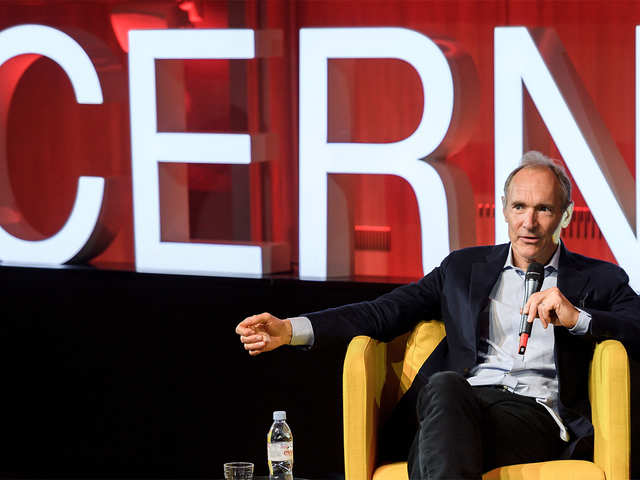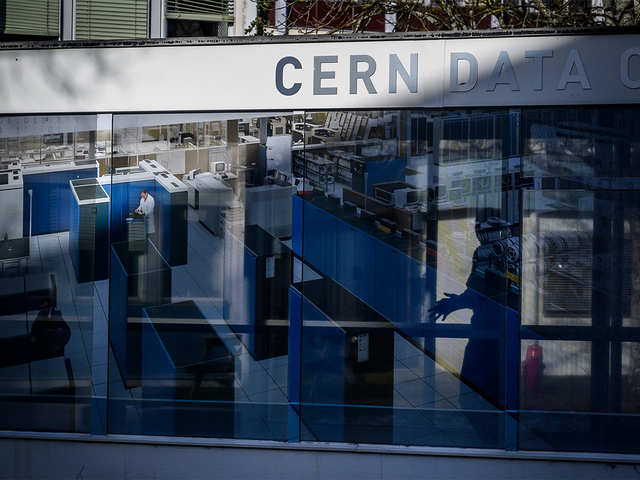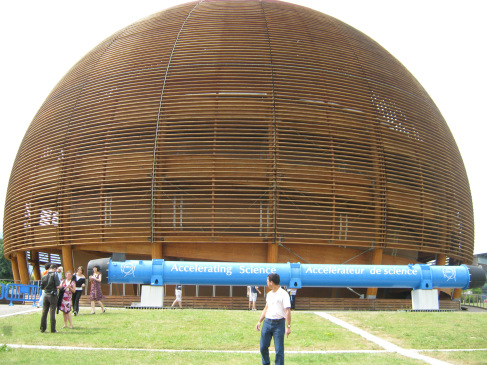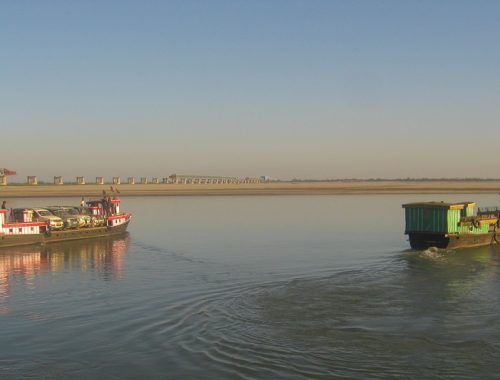At its ripe old age of 30 and with half the globe using it, the World Wide Web is facing growing pains with issues like hate speech, privacy concerns and state-sponsored hacking, its creator said.
Tim Berners-Lee (in pic) joined a celebration Tuesday of the Web and reminisced about where he invented it — at CERN, the European Organization for Nuclear Research — beginning with a proposal published on March 12, 1989.
The 63-year-old Englishman is calling on governments, companies and citizens to work together, and wants the web to become more accessible to those who aren’t online.AFP

Not the web wanted
Speaking at a ‘Web(at)30’ conference, Berners-Lee acknowledged that for those who are online, “the web is not the web we wanted in every respect.”
The web has created opportunity and made our lives easier, but many people feel afraid and unsure if the web is really a force for good, he said, adding that he sees three sources of dysfunction affecting today’s web.
These are deliberate, malicious intent, such as state-sponsored hacking and attacks, criminal behaviour, and online harassment.AFP

Make the WWW a better place
He said that governments, technology companies and web users around the would have to make their contributions to make the web safer in the next 30 years.
“Governments must translate laws and regulations for the digital age. They must ensure markets remain competitive, innovative and open,” Berners-Lee said.
While companies must do more to ensure their pursuit of short-term profit is not at the expense of human rights, democracy or public safety, citizens must hold companies and governments accountable for the commitments they make, he added.AFP
SUBSCRIBE TO:SLIDESHOW NEWSLETTER
Get your daily dose of news with striking images from India and around the worldSubscribe

History of WWW
On this day in 1989, Sir Tim Berners-Lee, then a 33-year-old software engineer, submitted “Information Management: A Proposal” to his boss, which then came to be known as the World Wide Web as we know it today.
“Initially, Berners-Lee envisioned it as ‘a large hypertext database with typed links’, named ‘Mesh’, to help his colleagues at CERN (a large nuclear physics laboratory in Switzerland) share information amongst multiple computers,” the search engine giant said in a blogpost.AFP

Back to 90s
Initially terming the proposal as “vague but exciting”, his boss encouraged Berner-Lee to “develop the humble flowchart into a working model, writing the HTML language, the HTTP application, and WorldWideWeb.app – the first Web browser and page editor”. By 1991, the external Web servers were up and runningAFP

WWW is not internet
Not to be confused with the internet, which is a huge network of computers connected together, the World Wide Web is an online application built upon innovations like HTML language, URL addresses, and hypertext transfer protocol, or HTTP.
The web made technology into something that linked information together and made it accessible to everyone.




